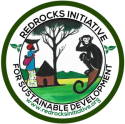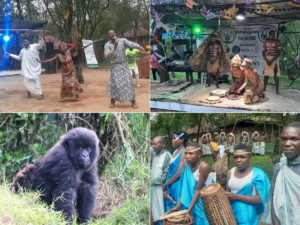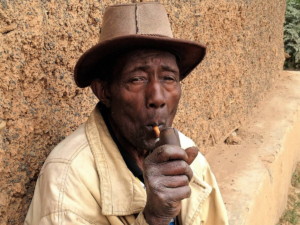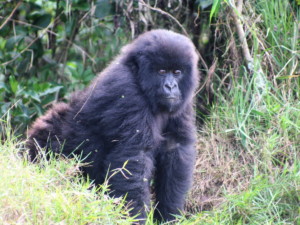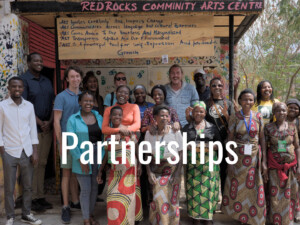Beyond ‘voluntourism’: Can you help Rwanda with sustainable tourism and community development?
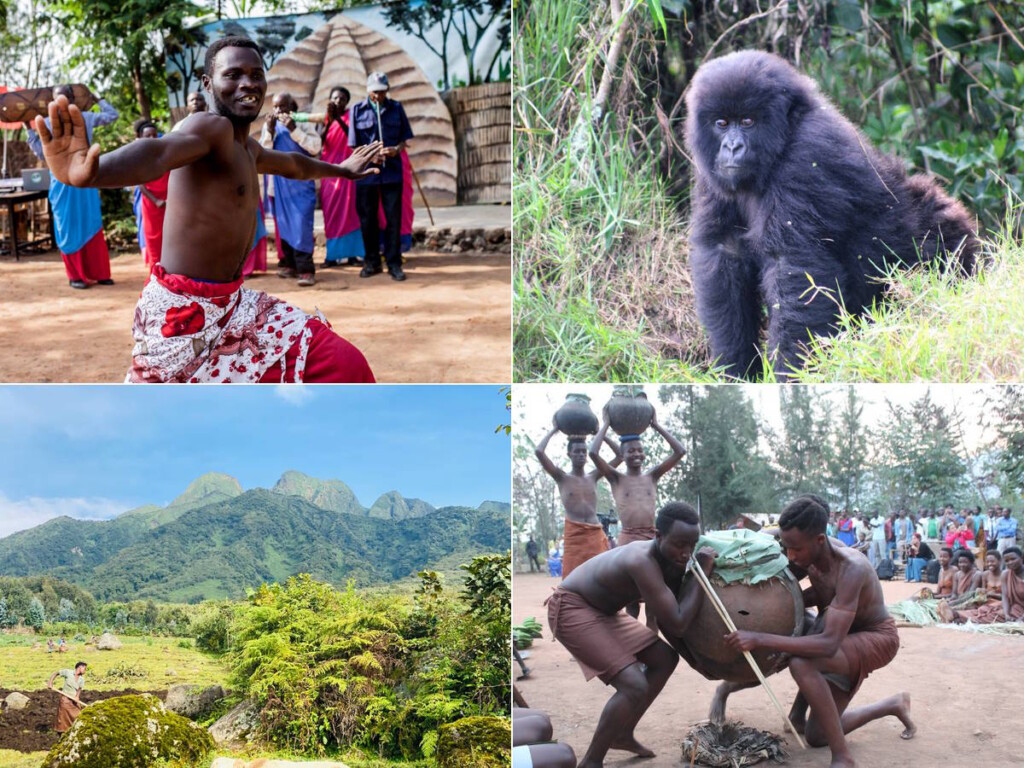
Dripping with sustainable tourism and community development potential, the Volcanoes National Park in northwestern Rwanda, along with the Virunga Park in the Democratic Republic of Congo (DRC) and the Bwindi Park in Uganda, make up the famous Virunga Massif whose eight volcanoes are the only habitat in the world for mountain gorillas.
In Rwanda, Volcanoes National Park will be expanded. Over the next five years, the 13,000-hectare protected area will gain an additional 10,000 hectares. Some 2,860 hectares will be used for park activities while more than 7,000 hectares will be set aside as a buffer zone, an area between the park and the people, benefiting both.

As part of our program to promote sustainable tourism and community development around Volcanoes National Park, Red Rocks Initiative for Sustainable Development is advocating ecotourism and cultural tourism.
We believe ecotourism and cultural tourism activities can generate considerable benefits for our communities, as well as provide invaluable intercultural and knowledge exchange beyond traditional ‘voluntourism’.
Red Rocks Initiative for Sustainable Development involves the local population in everything it does. In that spirit, we wish to forge partnerships with like-minded individuals and organisations from around the world to help us progress our sustainable tourism and community development projects.
If you are interested in partnering with us, we at Red Rocks Initiative for Sustainable Development would love to hear from you. Please email [email protected].
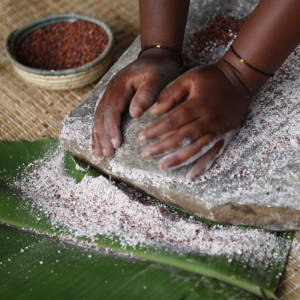
We have created a collaborative environment wherein the local community can work together with us and our partners to position ecotourism and cultural tourism activities as competitive uses of the land — creating jobs, stimulating local micro-enterprise development, promoting local procurement, developing skills and knowledge, and ultimately improving livelihoods within and around Volcanoes National Park — all the while conserving what makes the region unique.
Our long-term objective is to ensure that local people can enhance and leverage their skills in agriculture, trade, art, music, education, and much more, so that our communities can raise their living standards while conserving their environment and honouring their traditional ways of life.
We also engage in global advocacy through sharing our experiences and urging the tourism industry to step up their sense of environmental, social, and cultural responsibility. Our partnership with The “Good Tourism” Blog is just one example of this.
Read more “GT” content about Red Rocks Rwanda & Red Rocks Initiative
A few of our sustainable tourism and community development projects
At home in Rwanda we have launched many projects, all of which are helping local communities adjacent to Volcanoes National Park gain access to better education and training, improved health, as well as higher sustainable incomes and outcomes.
Some of these include:
Climate change: Tree planting
Tree planting, reforestation, and the introduction of renewable energy and energy-saving programs are important to us. We involve locals in planting trees and teach them how to conserve and maintain trees for combating the effects of climate change. We use seed bags made from banana bark, a biodegradable alternative to plastic.
Agriculture: Levelling up skills
Communities adjacent to Volcanoes National Park depend upon the small plots of land they own for much of their food. We support small-scale subsistence farmers by training them in organic agriculture practices, such as manure and green waste composting, to reduce their costs, increase their yields, and help them maintain the health of their soils as well as the biodiversity of their surroundings.
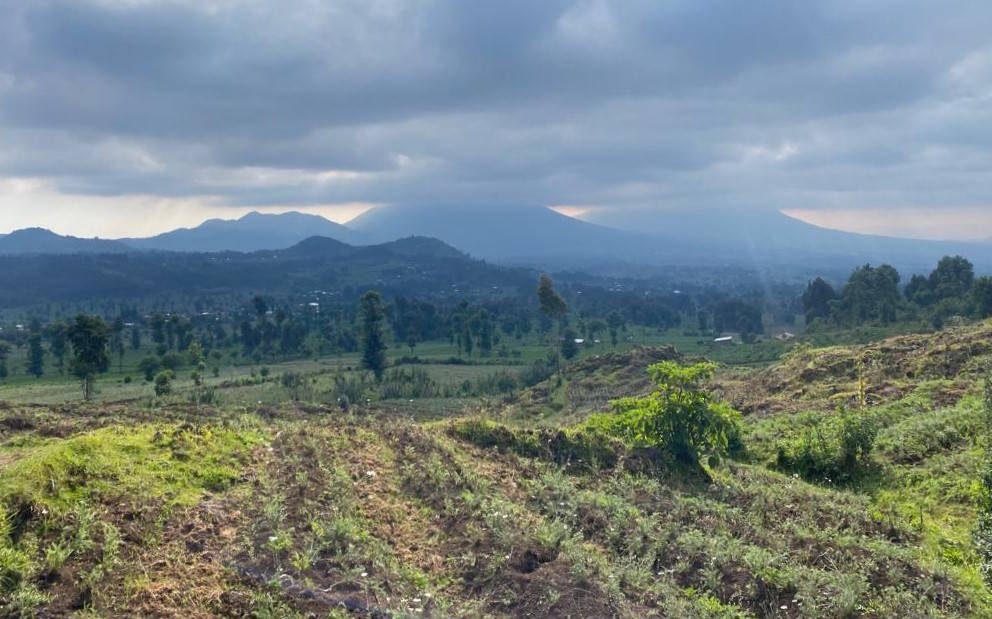
Biodiversity: Botanic garden
We established a botanic garden to observe precisely how tourism, conservation, and community development can be complementary. Our gardens also cultivate traditional medicinal plants and tree spices that traditional doctors used to illegally source from Volcanoes National Park.
Health: Sanitation
Responding to needs and using donations from well-wishers who visit our area, we help locals construct pit latrines. More than 100 families have benefitted so far.
Education: School projects
We leverage our clients’ time and donations here too; for painting and maintaining classrooms in village schools, and the purchase of stationery, uniforms, and shoes for students. They can also spend time with students to help them practise their English.
Culture: Arts for conservation, conserving arts
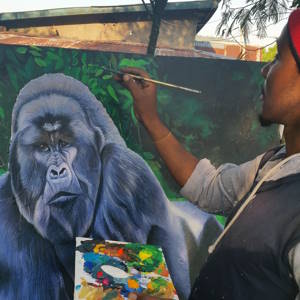
The cultures of the communities we serve are intricately tied to the natural world. By providing spaces for the practice, exhibition, and sales of traditional and contemporary styles of artwork, we reinforce a culture of nature awareness and conservation while generating livelihoods for artists.
Through cooperative womens associations, we enable communities to retain and regain their traditional skills in crafts, such as weaving baskets, mats, and other products. By selling those products to tourists they can earn supplementary incomes and possibly even gain financial independence for themselves and their children.
In conclusion, not only do we welcome visitors to our lands, we welcome their input and expertise too. It’s more than volunteering or “voluntourism”; it’s sharing with our community members who are keen to learn skills and knowledge from you, share theirs with you, and provide you with perhaps your most unforgettable travel experience.
So, in that same spirit, we are seeking partnerships with like-minded individuals and organisations from around the world who would like to help us level up and progress our sustainable tourism and community development programs.
If you are even the slightest bit interested, we at Red Rocks Initiative for Sustainable Development would love to hear from you at [email protected].


